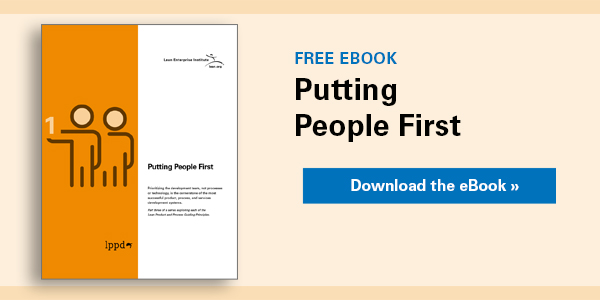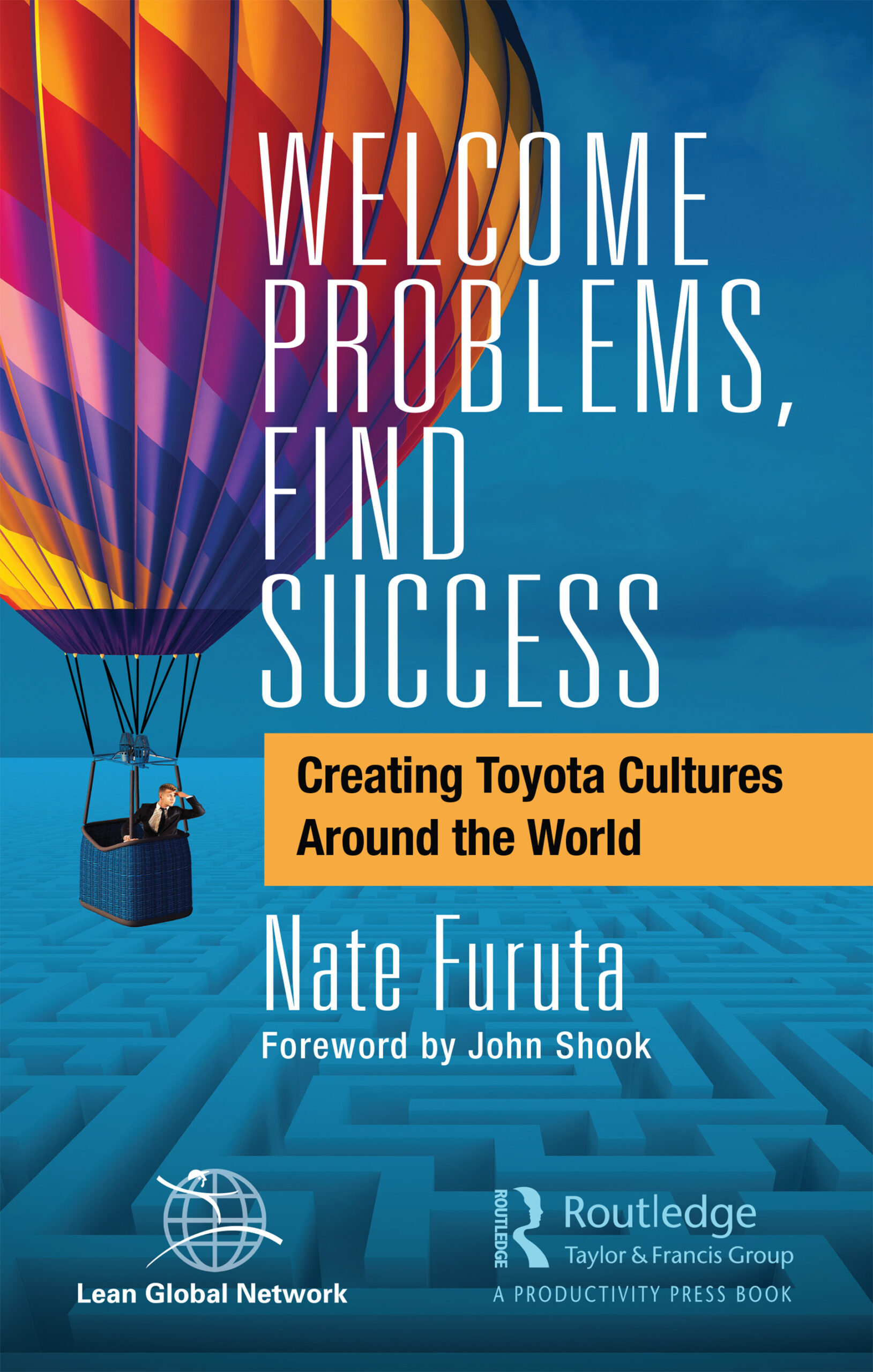Join subscribers who already have a jump on you getting the latest insights from Lean Product and Process Development thought leaders and practitioners. For example, this article was delivered to subscribers of The Design Brief, LEI’s newsletter devoted to improving organizations’ innovation capability. Subscribe now.
For many years, I have talked about product development capability as a socio-technical system consisting of three interdependent elements: people, processes, and tools or technology. While I continue to believe that to be true, it can be misleading if you think of the elements as equally important because that is certainly not the case. To clarify, I believe leaders should deploy processes and technology in the service of their people.
Your people are far more critical to achieving development excellence than an improved process, a new technology, or even a brilliant product idea. I think Ed Catmull, co-founder and former president of Pixar, got it right when he said, “If you give a great idea to a mediocre team, they will screw it up. But if you give a mediocre idea to a great team, they will make it work.” But what Catmull left out is that great teams don’t happen by accident.
Learning About People-First Leadership
I learned a long time ago that while you may be able to hire talent, you must build a high-performance team. That requires leadership — people-first leadership. For me, the seeds of this belief were planted as I learned from numerous Toyota leaders both in Japan and the U.S.
I learned a long time ago that while you may be able to hire talent, you must build a high-performance team. That requires leadership — people-first leadership.
During my original research into Toyota product development, one of the very first things Mike Massaki, president of the Toyota Tech Center in Ann Arbor, Michigan, told me was that “we develop new products and people simultaneously using the Toyota Way.” Notably, he didn’t tell me about their powerful “know-how” database, simulation capability, lean processes, or visual management. Top-of-mind for him was investing in people. It was investing in people that was front of mind for him. By now, Toyota’s investment in the growth and development of their people is legendary, and that commitment has paid huge dividends. However, Toyota does not have a patent on people-first leadership.
Alan Mullaly arrived at Ford Motor Company fresh from leading an incredible turnaround at Boeing Commercial. At Ford, he faced innumerable challenges that threatened the very existence of the company. Fortunately, he brought his people-first, working-together management system, a system that he had honed over twenty years of leading development programs and organizations. His leadership inspired and enabled us to do and be more than we ever thought possible. The result was a historic turnaround during a time when competitors relied on bankruptcy protection to survive.
Alan’s insight: “It’s all about people. For leaders to create environments where skilled and talented people work together to make the best products and services in the world and improve efficiency every year, we need their hearts and minds.” You can hear more insights in Alan’s own words in this month’s video or by listening to (or reading the transcript of) my WLEI podcast interview with him. In addition, you can read more about the Ford turnaround story in Bryce Hoffman’s excellent book American Icon.
Putting Learning to Work
These experiences influenced my approach to people-related challenges as a leader. In one case, I was asked to lead a newly formed organization at Ford that combined body engineering, stamping engineering, and prototyping and tooling operations. Unfortunately, the relationships across these groups had disintegrated to where they barely spoke to each other, and overall performance had declined drastically.
I recall at the first meeting I set up with the various organizational leaders. The stamping engineering chief hurled a stack of feasibility rejections at the body chief, and the tool and die plant manager threatened to stop work on all dies as papers fluttered to the floor and stormed out of the room. People were quick to tell me about all the frustrating processes and antiquated technologies. And while both were undoubtedly true, I knew that no process or technology would fix this mess.
Together our team implemented many of the practices and systems learned from both Mullaly and Toyota. That same team went on to accomplish some truly amazing things that you can read about in Designing the Future.
You Know When It’s Missing
Another reason I emphasize the role of leaders is that I have also experienced mercurial and narcissistic senior leaders who hire and fire people based on an ever-changing array of criteria, create organizational chaos and fear, and stifle the performance of an otherwise high-potential team. The long-term damage these leaders do is inexcusable.
Of People, Products, and Profits
More than anything else, product development is a people business, and leaders are key. Steve Jobs once famously said, “If you keep your eye on the profit, you’re going to skimp on the product. But if you focus on making really great products, the profits will follow.” I wholeheartedly agree. But I would add, “if you focus on your people, great products will follow.” As a leader, the most important product you can develop is your team.
In this month’s video, we are fortunate to have three leaders who embody the people-first principle. Dr. Lisa Yerian, chief improvement officer at The Cleveland Clinic, talks about the importance of capable and empowered people in creating a culture of continuous improvement. Also, former Ford CEO Alan Mulally shares his insights into the people-first management system behind the historic turnarounds of two iconic, global organizations. And in our final case, Jill Miller, Herman Miller Production System manager of learning and development at design icon Herman Miller, talks about the company’s famous leadership-development programs.
See the Lean Posts and related ebooks detailing other guiding principles:
- Putting People First (coming soon)
- Developing Products is a Team Sport
- Understanding Before Executing
- Building in Learning and Knowledge Reuse
- Synchronizing Workflows
- Designing Value Streams
Designing the Future
An Introduction to Lean Product and Process Development.







